Politics
/ArcaMax

A President's House architect is ready to 'fight' the Trump administration's potential exhibit removal next month
PHILADELPHIA — When Troy C. Leonard, who worked on designing the President’s House almost two decades ago, first found out that exhibits at the site are at risk under the Trump administration, he said, he was crushed.
“I was devastated that the exhibit that we had worked so hard on and spent so much time and thought so critically about ...Read more
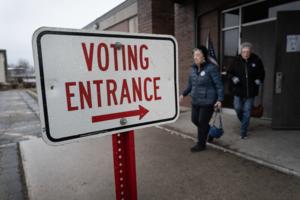
Turnover among election officials reaches new high, report finds
Election officials turned over at the highest rate in at least a quarter century during the last presidential election, according to new research from the Bipartisan Policy Center.
An analysis of shifts in election officials published Tuesday found nearly 41% of election officials administering the 2024 election were different than those in ...Read more
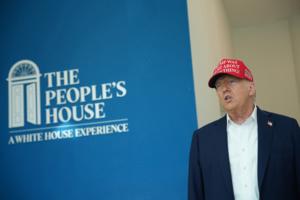
Trump to ask Congress for $2 billion to fix 'hellhole' DC
President Donald Trump on Friday said he would ask Congress for billions in taxpayer dollars for his effort to clean up the District of Columbia and make it safer, arguing the capital city was a “hellhole” before he took over its policing.
“Look, D.C. is a miracle,” he told reporters Friday during a stop at a new White House Historical ...Read more

What Justice Amy Coney Barrett's words on disagreement can teach us
Rodney King’s famous line “Can we all get along?” feels more relevant than ever today, underscoring our highly regrettable departure from civility toward a more belligerent and uneasy political reality.
But every now and then, we see small but significant signs that there’s movement toward reviving civil discourse. One of those moments...Read more

LA may land a new congressional seat. Is it already reserved?
LOS ANGELES — As Gov. Gavin Newsom's push to redraw California's congressional maps plays out at the state Capitol and on the national stage, a quieter but no less bloody scramble is simultaneously underway.
Newsom's plan — a bid to counter President Donald Trump's drive for more GOP House seats with his own California show of force — ...Read more

Trump backs huge Arizona copper mine as Apache win late reprieve to halt it
President Donald Trump this week threw his full support behind a massive project to turn a sacred Apache site outside Phoenix into one of the world’s largest copper mines, meeting with mining executives at the White House and ridiculing a recent court decision that temporarily halted the transfer of federal lands to their companies.
Trump and...Read more
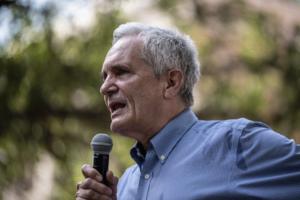
Democrat Lloyd Doggett won't seek re-election if courts don't overturn Texas redistricting
Rep. Lloyd Doggett, a longtime House Democrat and senior member of the Ways and Means Committee with a progressive track record, will no longer run for reelection to his current seat if Texas Republicans’ redrawn legislative maps aren’t shot down in court.
Under the mid-decade redistricting plans, which are still working their way through ...Read more

Trump visits police, troops in D.C. after suggesting he would patrol streets
Donald Trump is not quite the patrolman in chief, but he did meet Thursday with personnel implementing his law enforcement crackdown inside Washington, D.C.
In his showman’s fashion, he had suggested earlier in the day that he would walk the beat with police officers and National Guard members who have been patrolling the city’s streets ...Read more

Supreme Court lets US cut millions of dollars in NIH grants
A splintered U.S. Supreme Court let the Trump administration at least temporarily cut off millions of dollars in medical research grants that government officials say don’t align with the president’s policies.
The justices partially put on hold a federal trial judge’s decision that the National Institutes of Health acted in an “...Read more
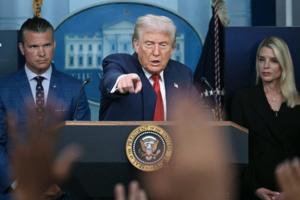
Trump plans ride-along with troops in Washington, D.C., crackdown
President Trump said he’s planning to ride along Thursday night with troops patrolling Washington, D.C., as part of his federal crackdown.
“I’m going to be going out tonight, I think, with the police and with the military,” Trump told conservative commentator Todd Starnes. “So we’re going to do a job. The National Guard is great. ...Read more
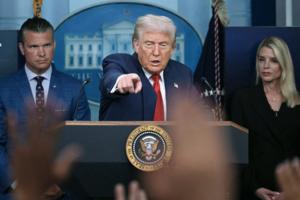
Trump on patrol: President says he will hit D.C. streets amid federal policing takeover
WASHINGTON — President Donald Trump will get a firsthand look at his federal takeover of policing in the District of Columbia when he heads out on patrol Thursday evening with law enforcement and military personnel.
Trump made the stunning announcement during a call-in segment to a conservative radio program, telling host Todd Starnes, “I�...Read more
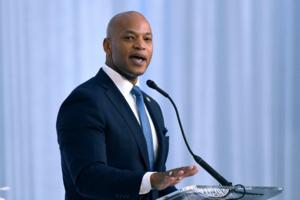
Maryland Gov. Wes Moore to President Trump: 'Keep our name out of your mouth'
BALTIMORE — Gov. Wes Moore called out President Donald Trump by name Thursday, saying during a speech before the demolition of Pimlico Race Course that the president should keep Baltimore’s “name out of your mouth.”
Acknowledging progress the city has made in the past couple of years, including securing a 30-year lease for the Orioles, ...Read more
Iran's freeze on nuclear inspections prompts UN-US crisis talks
International Atomic Energy Agency officials will travel to Washington next week to confer with the U.S. as concerns grow about their inability to account for Iran’s stockpile of near-bomb grade uranium, according to diplomats with knowledge of the situation.
The trip has been planned after IAEA Director General Rafael Mariano Grossi’s top...Read more
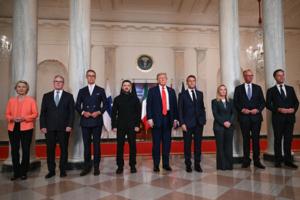
Allies to the rescue -- European leaders try to keep Trump on the correct side in Ukraine/Russia war
It’s not often that you have eight European leaders, including one whose country is at war, descend on Washington in as close to an unplanned snap visit as you can get. Let’s hope that the White House visit convinced the White House resident of the importance of the moment.
Monday afternoon, Ukrainian President Volodymyr Zelenskyy was ...Read more
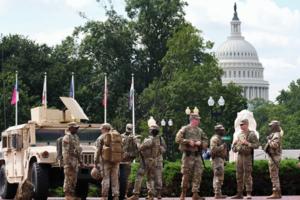
Is Trump normalizing military occupation of American cities?
President Donald Trump’s military interventions in Los Angeles and Washington, D.C., foretell his plan for other cities.
The Washington Post recently reported on the Pentagon’s plans for a “quick reaction force” to deploy amid civil unrest. And, broad mobilization of the military on U.S. soil could happen under the Insurrection Act, ...Read more
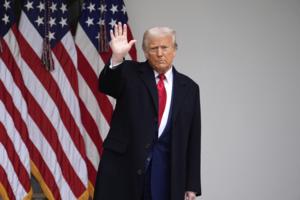
Trump plans executive order on flag burning, NewsNation reports
President Donald Trump plans to issue an executive order on flag burning, NewsNation reported, a move that aims to crack down on burning the American flag without running afoul of a 1989 Supreme Court decision that ruled doing so was protected speech.
Under the order, set to be signed Thursday, the Justice Department would review cases ...Read more
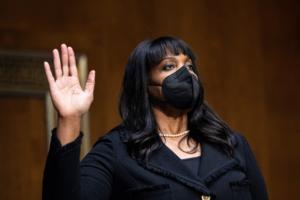
Fed's Cook says she won't be bullied into stepping down
Federal Reserve Governor Lisa Cook signaled her intention to remain at the central bank, defying calls for her resignation by President Donald Trump over allegations of mortgage fraud.
“I have no intention of being bullied to step down from my position because of some questions raised in a tweet,” Cook said in an emailed statement via a Fed...Read more
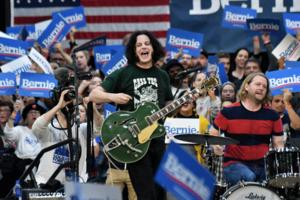
Jack White responds to insults, says Trump 'masquerading as a human being' in lengthy post
DETROIT — Jack White is doubling down — tripling down? Quadrupling down? — on his criticism of President Donald Trump.
In a lengthy Instagram post on Wednesday, the White Stripes rocker — who was called "a washed up, has-been loser" by White House Communications Director Steven Cheung on Tuesday — blasted Trump and his administration,...Read more

Longtime 'All Things Considered' host leaving NPR after Trump cuts
Veteran NPR host Ari Shapiro is saying goodbye to the network and All Things Considered, the latest high-profile departure following the move by President Donald Trump administration’s to defund public media.
But the move to kill federal funding to the Corporation for Public Broadcasting isn’t the reason Shapiro said he leaving the network ...Read more

Immigrants seeking legal work, citizenship now subject to 'anti-American' screening
Immigrants seeking a pathway to citizenship or a legal right to work in the United States will now be screened for “anti-American” behavior, the Trump administration said Tuesday, in a move that could affect thousands of Florida residents.
The announcement raised concerns about the subjective nature of the new policy, which will be a heavy ...Read more
Popular Stories
- What Justice Amy Coney Barrett's words on disagreement can teach us
- LA may land a new congressional seat. Is it already reserved?
- Allies to the rescue -- European leaders try to keep Trump on the correct side in Ukraine/Russia war
- Is Trump normalizing military occupation of American cities?
- Maryland Gov. Wes Moore to President Trump: 'Keep our name out of your mouth'






















































